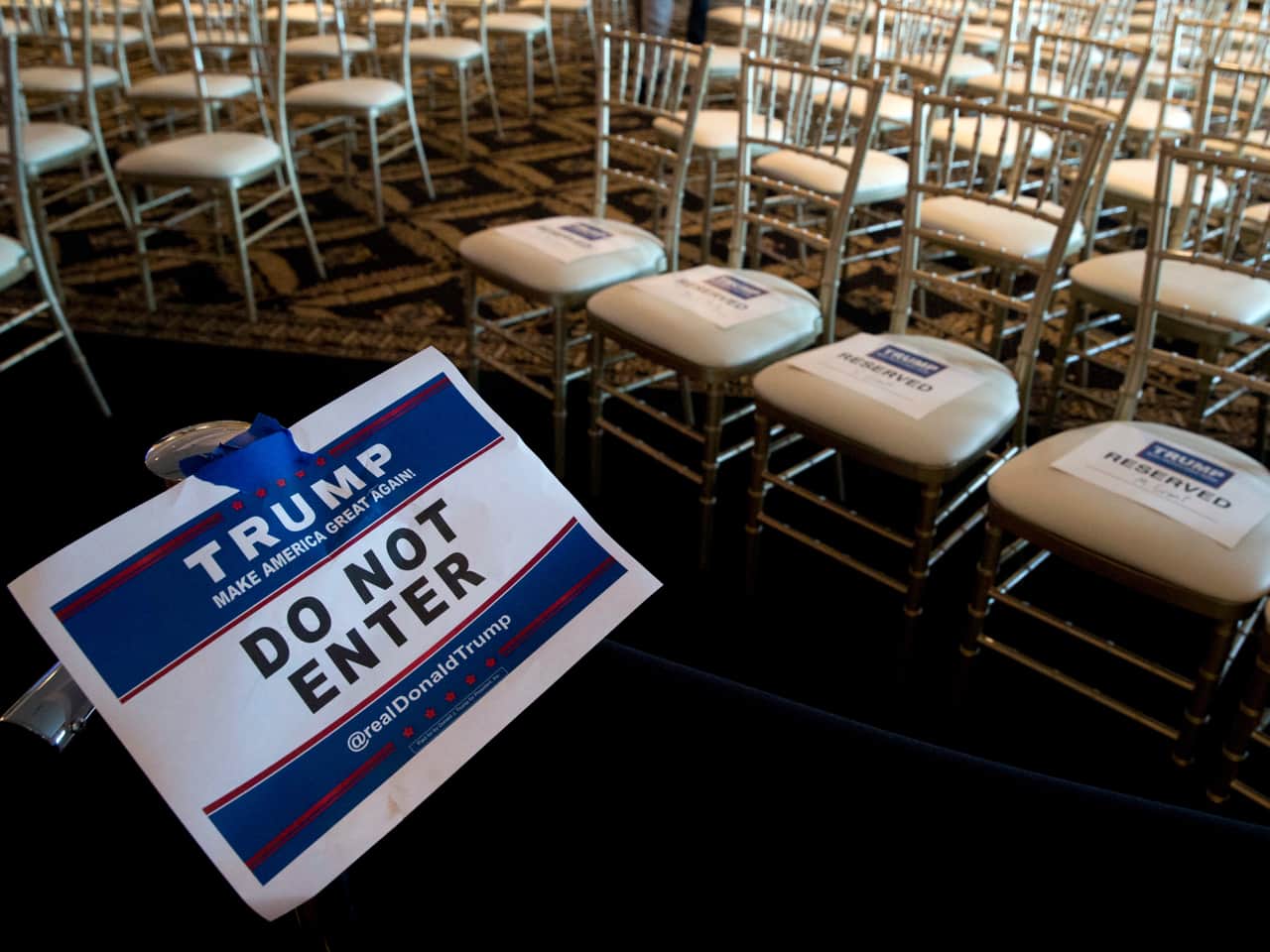IPI blasted Donald Trump's recent decision to deny credentials to the "Washington Post" to cover his campaign, saying his behaviour targeting critics in the media was inconsistent with American values.
This statement was originally published on freemedia.at on 16 June 2016.
The International Press Institute (IPI) today blasted U.S. presidential candidate Donald Trump’s recent decision to deny credentials to the Washington Post to cover his campaign, saying the Republican Party nominee’s behaviour targeting critics in the media was inconsistent with American values.
Trump announced the revocation of the Post’s credentials in a statement posted on Facebook on Monday [13 June 2016]. The move came after the Post published an article quoting comments by Trump appearing to imply that U.S. President Barack Obama had a possible connection to Saturday’s mass shooting at a gay nightclub in Orlando that left 49 people dead.
The candidate was reportedly angered over an initial headline, “Donald Trump Suggests President Obama Was Involved With Orlando Shooting”. Ninety minutes after the article was published, the paper changed the headline to “Donald Trump Seems to Connect President Obama to Orlando Shooting”.
The ban on the Post was the latest in a string of accreditation bans targeting media outlets that have scrutinised Trump’s colourful comments and frequent misstatements of fact. Other media outlets whose journalists’ credentials have reportedly been pulled following unflattering coverage include Politico, the Des Moines Register, the Daily Beast, Buzzfeed, the National Review, the Huffington Post and Univision.
IPI North American Committee Chair Marty Steffens, a Society of American Business Editors and Writers (SABEW) endowed chair at the University of Missouri and a member of IPI’s Executive Board, criticised Trump’s behaviour.
“The news media must remain free of intimidation in order to fully report on the actions of political candidates,” she said. “To deny press credentials to the Washington Post and so many others is a form of censorship that all free press advocates should rise up and protest. America is at its greatest when it has a free and vigorous press.”
IPI Director of Advocacy and Communications Steven M. Ellis went further.
“It’s ironic that someone campaigning on the slogan ‘Make America great again’ is working so hard to undermine one of America’s greatest strengths,” he said. “As many have noted, even President Nixon declined to stoop so low. Attempting to stifle free speech and manipulate coverage so that voters can’t get the information they need to make an informed choice isn’t just short-sighted and wrong, it goes against the centuries-old traditions of free speech and free political discourse for which the United States is rightly admired the world over.”
Often, when barred journalists attempt to enter Trump events as a member of the general public they are removed, denied access again or told there is not enough space. The Trump campaign also has been selective with foreign media, which the campaign claims has been due to space reasons.
In addition to bans, Trump has also directly attacked journalists and media outlets. On May 31, he lambasted the press when confronted with demands that he provide proof that he actually contributed funds he pledged to donate to veterans’ charities. In a press conference where he read the names of charities that received donations – many coming in the wake of a Post investigation revealing the discrepancy – Trump berated journalists, calling them “unfair”, “bad people”, “sleazy”, and “dishonest”.
He has also asked audiences at political rallies to join him in denouncing news media outlets and journalists, and in February he vowed to “open up libel laws” to make it easier to sue journalists and their employers for damages.
Journalists who are given access to Trump rallies are relegated to a “press pen,” a cordoned off area monitored by Secret Service agents which journalists are not allowed to leave for the duration of the event. Journalists are not allowed to circulate within the crowd to interview attendees and have faced repercussions for attempting to do so. Time magazine reporter Christopher Morris was roughly apprehended by a Secret Service agent when he stepped out of the press pen to take a photo of demonstrators at a rally on Feb. 29 in Radford, VA.
Trump has repeatedly tried to verbally discredit a variety of news outlets and reporters including The Washington Post and The New York Times, including by claiming that they are “losing money and [are] dishonest”.
He also has attacked individual journalists on social media and in interviews, spurring his supporters to do the same. Trump continues to refuse to ask his supporters to stop harassing journalists such as Julia Ioffe, who faced a barrage of violent and anti-Semitic messages online after Trump and his wife expressed disapproval of a profile Ioffe wrote about Melania Trump.
Earlier this year, when Trump was asked at a press conference whether he would continue his hostility toward the media if elected president, he affirmed that the media could expect more of the same.
Ellis noted that Trump was not the first American politician to take issue with media coverage and hinder journalists’ ability to cover a campaign.
“Democratic Party nominee Hillary Clinton’s record on media freedom certainly isn’t perfect,” he said. “There has always been an adversarial relationship between electoral candidates and the news media. But Donald Trump has taken things to a disturbing new level that carries the risk of doing serious, long-term damage to the cherished American values of free speech and press freedom.”



